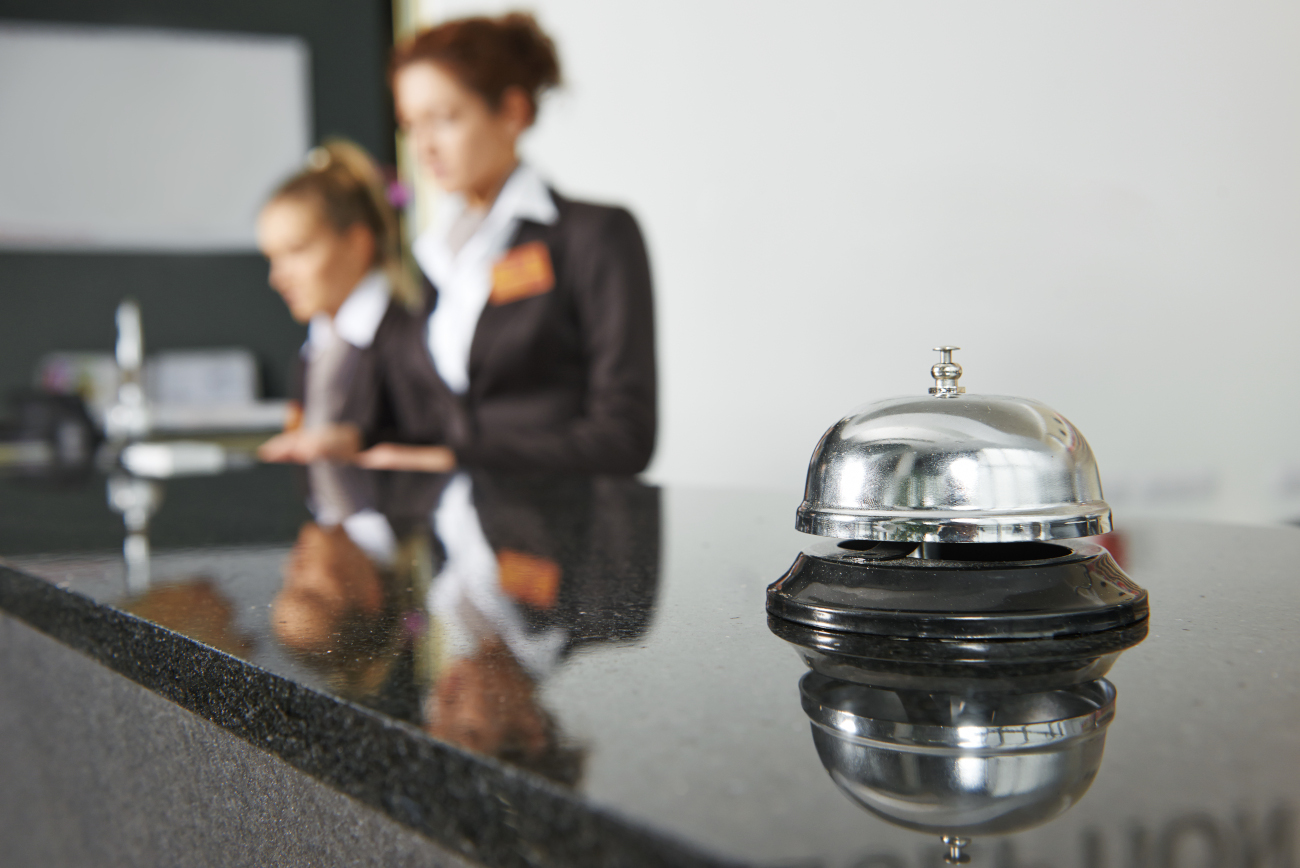Staffing hotels, motels, and other hospitality businesses can be a challenge. Turnover is high in this industry. According to the Bureau of Labor Statistics, employee turnover is estimated at around 73.8% annually. Meanwhile, HR experts suggest that it should be somewhere between 10% and 15% for a healthy workforce.
Several factors come into play to cause this ongoing problem. Hotels must be open 24-hours, which means that someone must be there overnight and on weekends. Many may require staff to be on-call or have irregular schedules.
There are also more job openings than potential hires, which creates competition when trying to find the most qualified and experienced people. And many places struggle to offer appealing benefits packages. A good training program is one of the ways to begin to counteract the effects of some of these industry-wide hiring problems.
Why Do High Turnover Rates Matter in Hospitality?
Turnover can hit your bottom line hard in any business, especially hospitality. A list of expenses goes into finding and onboarding new recruits. Time and money must be spent to reach out, find, and vet potential hires. Then they must go through orientation and training. Even more time may be required to get up to speed. This can lead to productivity loss for other staff members who have to help with training or oversee the new hire while they settle in.
That’s the most basic expenses. It will cost even more if you discover that the new hire isn’t fit for the position. If they cannot offer the level of service your facility demands, they could hurt your reputation, which can affect customer loyalty.
Younger generations coming into the workforce are more likely to move from one job to the next. According to a CareerBuilder study, about 25% of 35-year-olds will have held five jobs.
It’s a situation that businesses must adapt to and prepare to handle. One way to do that is to offer a high-quality training program. In his book titled The Great Principal of Management, businessman and author Michael Leboeuf explained that “If you believe that training is expensive, it is because you do not know what ignorance costs. Companies that have the loyalty of their employees invest heavily in permanent training programs and promotion systems.”
eLearning Comes to the Hospitality Industry
Learning management system developers and other professionals recognize the need for better training options in the hospitality industry. Many have created products that focus specifically on this sector. They create or modify technology that helps close skill gaps while making the training process more affordable. What are some of the platforms that are making a difference in the eLearning industry?
- Innform Offers First Subscription-Based Training Software
Innform.io hospitality training platform announced last year that it was the first subscription-based eLearning solution for the industry. The press release stated that a free basic tier would be available for small teams.
The platform includes ready-made quizzes and courses focused on hospitality topics. Co-founder Michael Azzopardi said that “Like many other industries before it, digital learning is evolving. Today, eLearning products must deliver the training tools we know and love in one flexible package, and for one simple price.”
The subscription approach could lead the way for others to follow suit, creating new options that could fill needs for small, independent businesses. Online training can cut costs and give companies a way to grow and get more out of their existing resources. Co-founder Sebastian Hefel emphasized that “The tool will allow trainers to combine its powerful features with classroom and mentor-based training, supporting blended learning.”
- DiscoverLink Provides Solutions for Independent Operators
DiscoverLink isn’t a newcomer to the hospitality arena. The company brings 15 years of service that helped over 200 restaurant brands take their training to the next level. The creators introduced a new solution in 2017 called DiscoverLink Learning. This product focuses on small chains and independent operators.
Restaurants can access an optimized LMS environment that contains a library of ready-to-use mobile e-courses as well as a checklist builder and integrated exams. It’s cloud-based, so the user doesn’t have to install server hardware.
Vice President of Strategy Tom Tankelewicz was excited about the update. “Now small restaurant businesses can leverage the same solution that major chains have been using for years.” Online training could help level the playing field and allow small operations to compete in a fiercely competitive industry.
- 1Huddle Emphasizes the Value of Mobile Learning in Hospitality
1Huddle was introduced in 2015 and expanded from a one-day workshop to a fully fleshed out training platform. It focuses on gamification with mobile access. The app has already been used by several big-name businesses, including Audible, ESPN, Hyundai, and the Madison Square Garden Company.
Founder and CEO Sam Caucci praises the many benefits of 1Huddle: “Through the use of science-backed, quick-burst mobile games, 1Huddle onboards new hires faster, upskills employees better and puts people in position to tackle any challenge they face.”
Gamification has proven to contribute to increased knowledge retention and trainee motivation. It is an ideal way to reach a younger workforce, which has spent an average of 10,000+ hours on a gaming platform before age 21.
Loews Hotels & Co. was 1Huddle’s first hospitality client. By October of last year, Loews employees played a total of 70,000 games on the platform, which is equal to approximately 1,000 hours of training time. That is on top of time spent on other training methods the company already utilized.
The human resources system game used by Loews increased retention by 44% while history games produced a 40% increase, and safety and security games led to a 36% increase.
- Hotels Improve Services with Autism Double-Checked Training
Autism Double-Checked was founded by travel agent Alan Day. Along with the support of partners who also have special needs children, Day built an organization that helps families raising children with Autism.
The group has established a three-level ranking system that highlights a business’ autism-readiness. Level one is considered “Autism Aware,” meaning that staff has had training to be inclusive, non-judgemental, and understanding. Level two is “Autism Ready” which means the staff have more in-depth training and can assist with things like dietary needs. And the third level is “Autism Double-Checked” for businesses that offer the highest level of service and consideration for those with Autism.
To achieve their goal, Autism Double-Checked has created online training that’s available 24-hours every day on any device. Hospitality companies who utilize the training can earn the business of a mostly untapped market. When asked about autistic travelers, Day explained that “The vast majority of them are not currently traveling because there are very few autism-inclusive offerings.”
“For the guests, the difference between a place that ‘gets it’ and one that doesn’t is the difference between traveling and not. It’s good for business in increasing the customer audience and rewarding for employees who feel that their hotel or business cares about them and their continuing service training.”
- LearnBrite Creates VR Scenarios for Hospitality Training
LearnBrite is an experiential learning authoring tool that allows users to create immersive scenarios for micro and instructor-led learning. For example, one scenario on the platform recreates the experience of front desk staff.
Users can customize an avatar that looks like themselves for a more immersive experience. An animated trainer greets them. After a brief dialogue, she sends the user to speak to Toni at the front desk to see what it’s like to be on the customer’s end of the interaction.
Toni shows some unfavorable behaviors like complaining, talking with a boyfriend, refusing to answer questions, and yawning in the middle of the conversation. While the animation and dialogue are far from Hollywood-grade production quality, the interaction helps the user understand proper etiquette and how their actions affect customer perception.
The trainer returns for a follow-up discussion that analyzes what happened. All this can be done without putting a new hire in front of real customers. It teaches them how to empathize and gives them an understanding of professional conduct while on the job.
eLearning is changing hospitality training in a big way. Its reach will continue to expand and create new opportunities for workers and the businesses that hire them.







